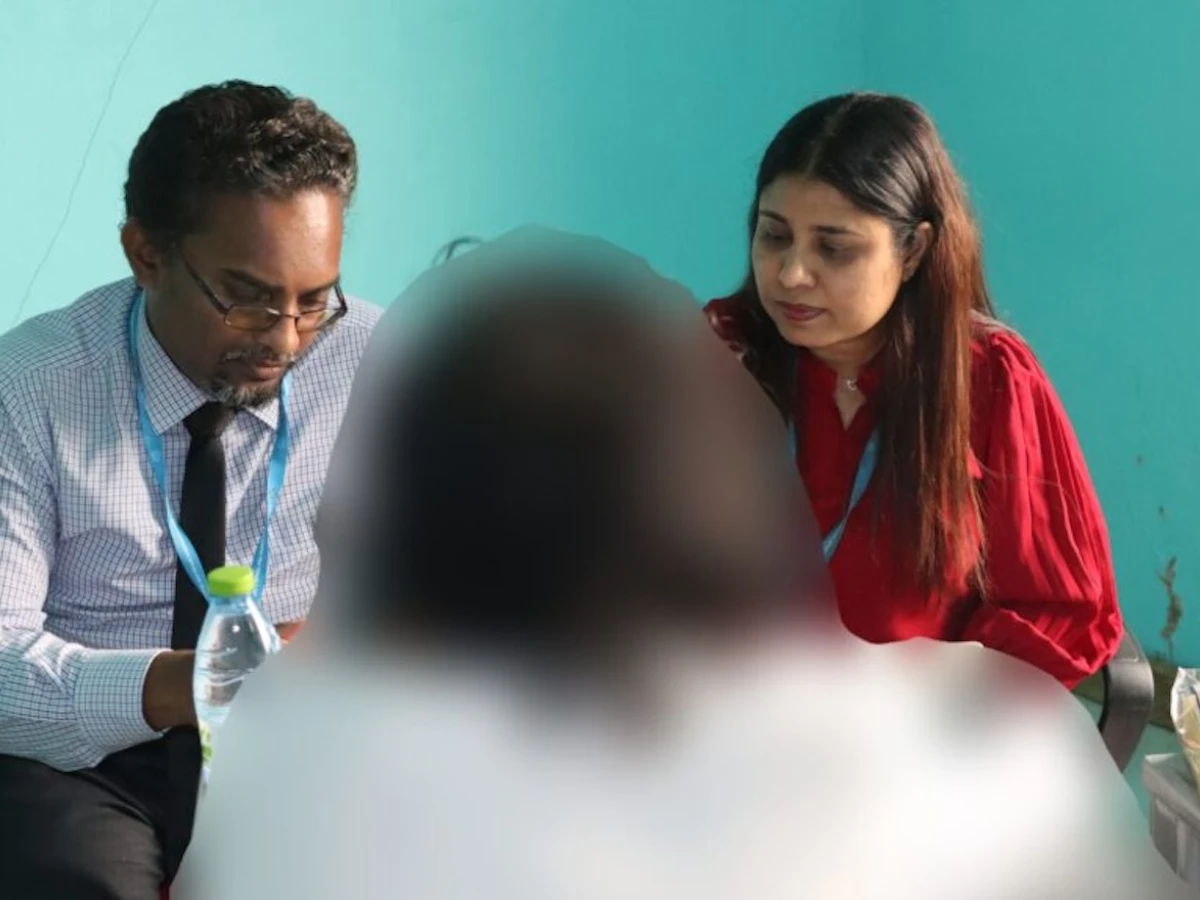
OTJ concludes pre-hearing meetings in prison torture cases
According to the office, the hearings in the case will look into the nature of the systematic acts of arrest and detention at various stages.
Top Stories
By
Shahudha Mohamed
The Office of the Ombudsman for Transitional Justice (OTJ) has met with those noted to give their statements on hearings that will not be held openly in public in the wake of complaints alleging human rights violations and inhuman low-level practices and torture in prisons across the country.
A team from the office visited K. Maafushi Prison on Thursday and met 26 persons from among those whose names were noted down to give statements during the hearings.
The purpose of these meetings, the office said on Monday:
-
To inform the detainees about the closed hearings
-
To assess the status of the petitioners
-
By informing them about the declaration of no objection to give a statement during these hearings and signing it
-
Explain what they need to pay attention to during hearings
According to the Ombudsman's office, a confidential hearing on cases related to torture in prisons will be held in three parts:
-
The first part of the hearings will be held at Maafushi Prison
-
The second hearing will be held in Male as well as Asseyri Prison
According to the office, 37 people have been nominated to give their statements at the hearing held at Maafushi Prison, 12 to give statements at the hearing in Male and two to give their statements at Asseyri Prison.
In November, the office opened the door to those who wish to provide information by allowing the complainants as well as others who have experienced such activities to participate in hearings that will not be open to the public.
According to the office, the hearings in the case will look into the nature of the systematic acts of arrest and detention at various stages of detention within the jurisdiction period of the office:
-
Whether human rights and fundamental freedoms have been curtailed
-
Whether there have been incidents of violence
-
The extent to which such acts have taken place
It will also examine whether international conventions have been complied with, in addition to laws and regulations enacted in the Maldives to guarantee human rights and fundamental freedoms guaranteed by the Constitution and to prohibit acts of violence, it said.
The Office of the Ombudsman for Transitional Justice was set up to look into cases related to human rights and dignity committed between January 1953 and November 17, 2018.
Apart from the atrocities committed in prisons, the office is looking into:
-
Case relating to the genocide in Thinadhoo 60 years ago, in 1962, under the then Prime Minister and later President Ibrahim Nasir
-
The petition seeking to overturn the conviction of President Mohamed Ameen Didi, the country's first president
Under the Interim Justice Act, the office has been given two years. The deadline expired in December last year and the commission had earlier said that there were over 400 cases that the office needed to look into. Therefore, the government had earlier said that it has decided to extend the term of the office.
However, if the deadline given to the Office of Interim Justice is extended, the government will have to move an amendment to the Interim Justice Act and send a bill to parliament.




